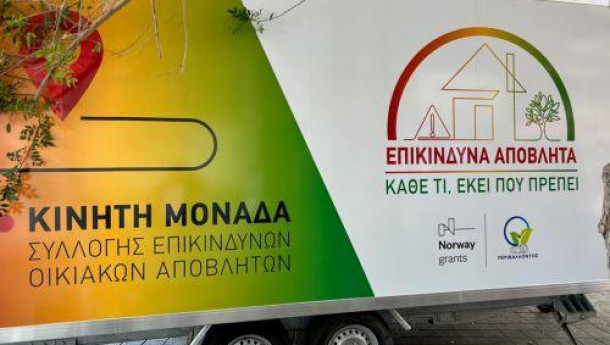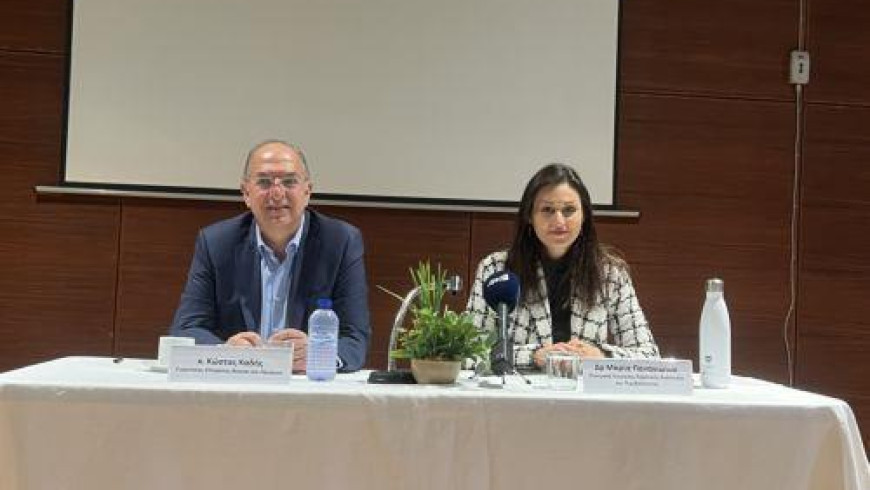
Cypriot Minister of Agriculture, Rural Development, and Environment, Petros Xenophontos, announced Friday the commencement of a new initiative for the collection of hazardous household waste. Speaking at a press conference the minister highlighted the challenge the government faces in managing hazardous waste from households, especially in light of the mandatory separate collection of such waste by January 1, 2025.
As part of this initiative, the Ministry of Agriculture has launched Action 3, titled "Visits to local authorities for the diversion of hazardous household waste to licensed facilities," within the framework of the project "Management of Hazardous Waste from Households" in the Municipality of Nicosia.
Xenophontos noted that the project aims to inform and raise awareness among the public through various actions, including visits by four mobile units to locations throughout Cyprus for the purpose of educating the people and collecting hazardous household waste in appropriately designed spaces.
"The action with the four mobile units involves visits to selected locations across Cyprus, based on a schedule, to inform and collect hazardous household waste in properly designed internal spaces," he added.
The first visit is scheduled for October 16, to the Municipality of Nicosia. The plan for visits spans six months, from October 2023 to March 2024, and is prepared by the Nicosia Development Agency, which will manage it.
Minister Xenophontos estimated that there will be a total of 250 visits to municipalities and communities across Cyprus. This plan will be posted on the project's and the Department of Environment's websites and will be updated every 15 days.
During these visits, the public will receive information about hazardous household waste, its categorization, and the proper methods for households to manage it.
"The public will be able to deposit their hazardous waste in the mobile units in various containers designed for specific types of waste, such as batteries, small electrical and electronic devices, pesticides, fertilizers, pesticides, pharmaceuticals, cleaning products, inks, printer toners, paints, solvents, and lubricants," he explained.
The mobile units will remain on the same location for 2-3 days before moving to another site.
Nicosia Mayor Constantinos Yiorkadjis on his part noted the importance of the project in contributing to the municipal waste management efforts in Nicosia.














 3287.99
3287.99 1275.09
1275.09
